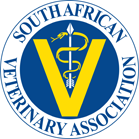Original Research
A comparison of selected public health criteria in milk from milk-shops and from a national distributor
Journal of the South African Veterinary Association | Vol 74, No 2 | a501 |
DOI: https://doi.org/10.4102/jsava.v74i2.501
| © 2003 M. More O'Ferrall-Berndt
| This work is licensed under CC Attribution 4.0
Submitted: 27 June 2003 | Published: 27 June 2003
Submitted: 27 June 2003 | Published: 27 June 2003
About the author(s)
M. More O'Ferrall-Berndt,Full Text:
PDF (216KB)Abstract
Selected public health criteria of pasteurised milk available to the consumer from milk-shops in a pre-defined area of Pretoria compared with a national distributor's milk was evaluated. Of the 135 milk samples purchased from milk-shops, 87 % were not fit for human consumption on the basis of the minimum standards prescribed in the Foodstuffs, Cosmetics and Disinfectants Act, 1972 (Act 54 of1972). The national distributor's milk (n = 79) did not contain any pathogens, toxins nor inhibitory substances and passed all the criteria laid down in the Act. Even though milk-shop milk was sold as having been pasteurised, 38.5% of samples were alkaline phosphatase positive, indicating probable inadequate pasteurisation. Milk-shop milk quality varied between milk-shops and between sampling days and differed significantly (P <0.05) from the national distributor's milk. Total aerobic plate and coliform counts were generally high for all milk-shop milk samples. Somatic cell counts of milk-shop milk differed significantly (P < 0.05) from the national distributor's milk. Escherichia coli was detected in 1 ml of 17% of milk-shop milk, 95% of which originated from milk which was alkaline phosphatase positive. Salmonella spp. could not be detected in 1 ml in any of the E. coli-positive milk tested. Staphylococcus aureus was isolated from 40% of milk-shop milk samples, and S. aureus enterotoxins from 7.8 % of 51 cultures. Inhibitory substances were detected in 54.1 % of milk-shop milk. The presence of inhibitory substances and the isolation of E. coli and S. aureus (some of which were able to produce enterotoxins) indicated potentially unsafe milk and poses a serious public health risk to consumers.
Keywords
Milk Hygiene; Milk-Shops; National Distributor; Pathogens; Pretoria; Toxins; Veterinary; Public Health
Metrics
Total abstract views: 8153Total article views: 3775
